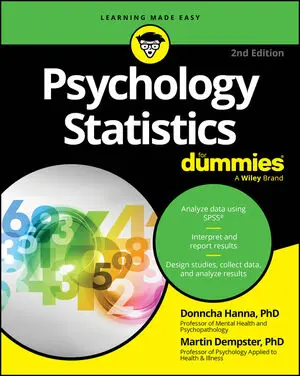
Psychology Statistics For Dummies
Overview
Untangle statistics and make correct, dependable conclusions
Psychology Statistics For Dummies, 2nd Edition makes statistics accessible to psychology students, covering all the content in a typical undergraduate psychology statistics class. Built on a foundation of jargon-free explanations and real-life examples, this book focuses on information and techniques that psychology students need to know (and nothing more). You'll learn to use the popular SPSS statistics software to calculate statistics and look for patterns in psychological data. And, this helpful guide offers a brief introduction to using the R programming language for statistical analysis—an increasingly important skill for the digital age. You'll also find hands-on practice exercises and examples using recent, real datasets.
- Explore the use of statistical analysis in research for the psychology field
- Master basic statistics concepts such as means, standard deviations, and correlations
- Conduct data analysis using the SPSS software package
- Get clear explanations of everything in your psychology statistics course, so you can pass with flying colors
This guide is perfect to use as a readable supplement to psychology textbooks and overall coursework. Students in other social and behavioral sciences can also benefit from this stellar primer on statistics.
About The Author
Donncha Hanna, PhD, is Professor of Mental Health and Psychopathology at Queen’s University, Belfast. He is a co-author of Research Methods in Psychology For Dummies.
Martin Dempster, PhD, is a health psychologist and statistician at Queen’s University, Belfast. He’s a co-author of Research Methods in Psychology For Dummies.







